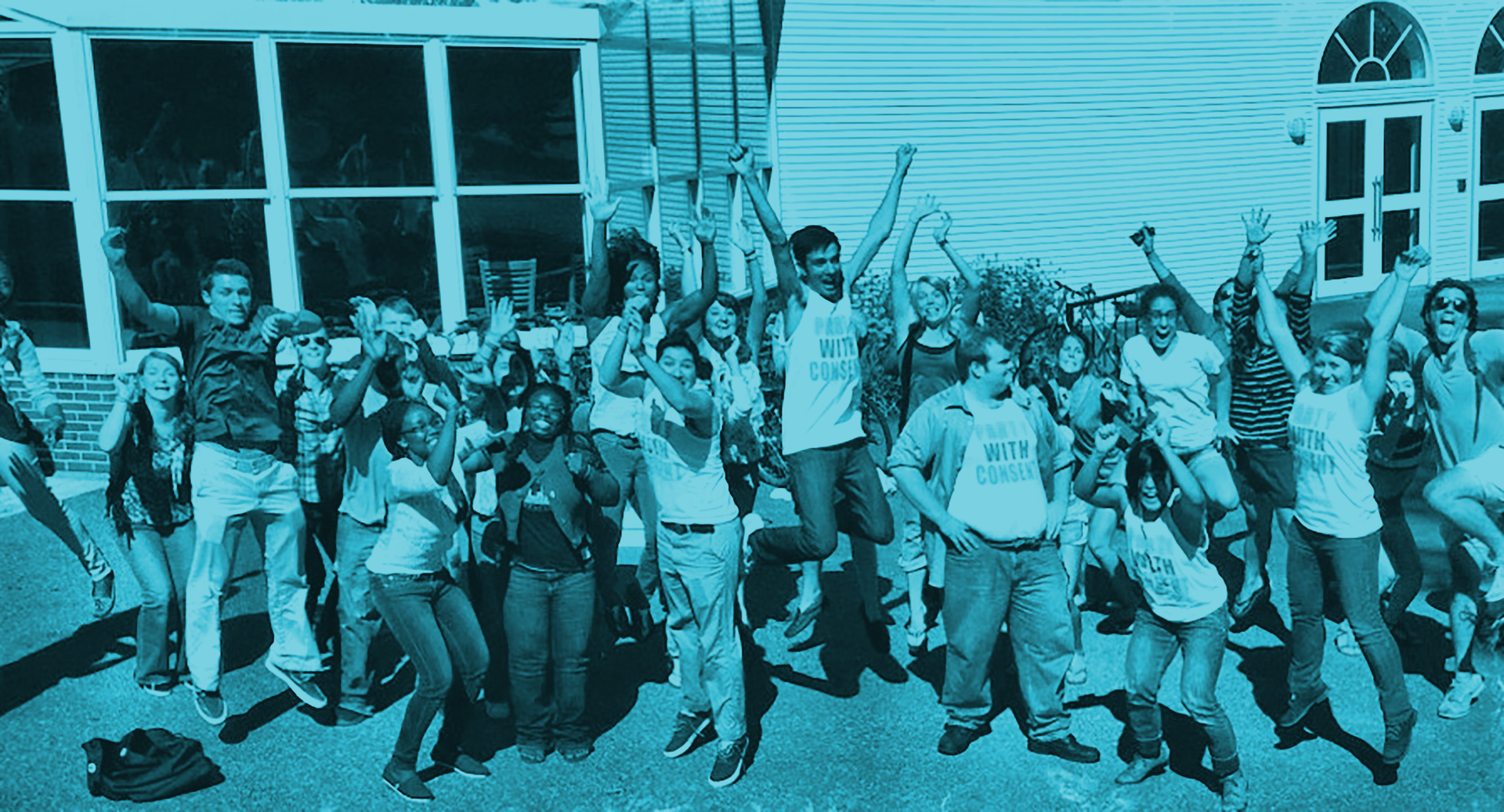This Is What’s Missing From Campus Debates Over Sexual Assault

Colby College senior Jonathan Kalin launched Party With Consent to combat campus sexual violence: His hour-long workshops focus on examining male privilege and challenging traditional notions of masculinity. He’s about to take the project national, and he’s getting lots of publicity. (Check out his new article in Time about what sexual “consent” really means.)
In light of Elliot Rodger’s killing spree in Santa Barbara last week, Kalin’s movement feels even more urgent. Here’s what he wants you to know about guy culture on college campuses, how it affects sexual assault, and what we need to do next.
Empower men. Don’t lecture them.
“Men aren’t the enemy. Instead of telling guys, this is what you can’t do and how you shouldn’t act around women—we need to use male privilege to help men get excited about what they can do to help.”
Acknowledge male privilege.
“Some guys simply don’t realize that the campus experience is totally different for men than it is for women. It’s important to let the idea of male privilege percolate in the minds of guys on campus. For the most part, when a six-foot guy goes to a party, if he gets drunk, he’s not concerned about safety. Women don’t have that luxury. Women know where every single emergency light is on campus.”
Close the reality gap.
“When I’m talking to guys about sexual assault on campus, a lot of them say: ‘Does this even happen here?’ It’s important to get the truth out—sexual violence does happen on college campuses—to build empathy. Women aren’t simply whining when they say they’re unsafe.
Know that zero doesn’t mean zero.
“It’s easy to believe that ‘this doesn’t happen here’ when assaults aren’t reported. In my work, I’m seeing colleges realizing that even though your campus might have no reported assaults, it doesn’t mean they don’t exist. It just means that your reporting process makes people feel re-victimized, so they don’t speak up.”
The man box exists. Step out of it.
“Men are told to live in a box. If we cry, we’re called names. From the time we’re very young, we’re told, ‘Be a man. Grow a set of balls.’ It’s all about power, and this attitude can carry into our relationships with women. But where does this language even come from? It’s a social construct. If you’re a guy, masculinity can be however you define it.”
Strength ≠ violence.
“When a boy’s manhood is challenged, he’s taught to fight back. Anger and power are the only emotions many men are allowed to show. There’s this socialized idea that men are stronger than women, and they need to be in control. This perpetuates rape culture. There’s a high-five we give. I’m working to help men unlearn those perceptions.”
Take the conversation beyond sports.
“This topic has existed mainly inside the athletic realm because teams can have that mob mentality, and there are often public repercussions for athletes if they break rules. It’s lazy to silo the conversation.”
Stop talking about sex like it’s a commodity.
“We talk about ‘giving’ or ‘getting’ consent for sex. This commodifies our bodies and our sexuality: I ‘give’ someone money to ‘get’ food at the dining hall. I want to change the conversation around consent, from giving and getting to creating consent. It’s not about ‘scoring’ or hitting a ‘home run.’ For the sexual culture to change, the language needs to change, too.”
Learn more about Party With Consent right here. For more info about how men can be strong without violence, check out the great work done by Men Can Stop Rape and A Call to Men.
Have more ideas about how men can say NO MORE to campus sexual assault and violence? As always, let us know on Facebook.
Together We Can End Domestic and Sexual Violence






